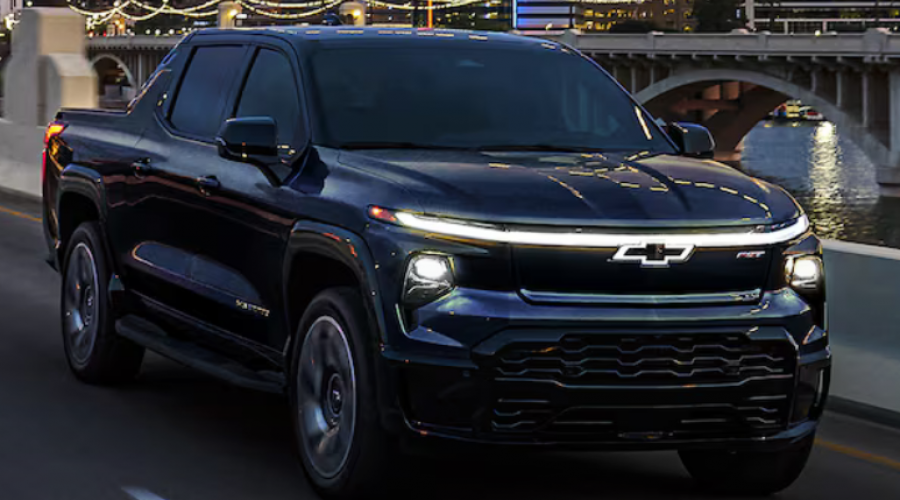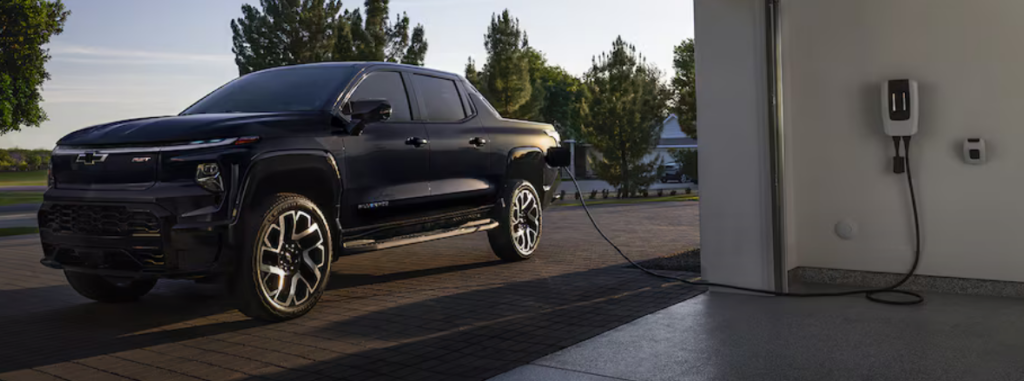I’m not sold on electric vehicles, but I know someone who at least has an open mind on the subject.
Morgan Crosbie, a salesperson at Finch Chevrolet Cadillac GM in London, Ontario, is upbeat every time I talk to him about cars. He has a popular YouTube channel called Cars and Crosbie that has 10,000 subscribers. He coined the phrase, If You’re A Canuck, You’re In Luck because he’s trying to use his videos for a Canadian audience and to help consumers buying cars.
My concerns about EVS is it was an idea forced upon consumers by governments concerned about the environment. I believe in a market-driven economy and people aren’t buying EVs with interest that manufacturers had hoped, leading to sagging sales and profit losses. Some OEMs are re-thinking their strategies. Ford announced in July that the plant in Oakville that was to be used to assemble three-row EV SUVs will now be used to manufacture its gas-powered F-Series Super Duty pickup truck.
One EV-specific manufacturer, Fisker, filed for bankruptcy in June. A Fisker spokesperson sounded the warning for all EV-specific manufacturers in an article in CarExpert.com.

“Like other companies in the electric vehicle industry, we have faced various market and macroeconomic headwinds that have impacted our ability to operate efficiently.”
Potential changes in the current U.S. and Canadian governments could see a different philosophy that is not pro EV.
In Canada there will soon be almost no financial incentives to buy an EV. Earlier this year, Quebec announced plans to phase them out completely by 2027 feeling there’s no reason any more to hand out money because EVs have moved on from the early adoption stage. B.C. followed and lowered the manufacturer’s suggested retail from $55,000 to $50,000 for vehicles qualifying for the province’s rebate program. That removes about 75 percent of EVs and hybrids. Ontario Premier Doug Ford scrapped rebates worth almost $14,000 shortly after elected in June 2018. He has chosen to invest on building battery plants.
“In terms of incentives, I think if you give people fish then they won’t learn how to fish,” Morgan said. “If you’re giving people incentives it doesn’t really motivate manufacturers to innovate and come out with a cost-effective vehicle on their own. If you subsidize the cost of vehicles with rebates through the government, in the long run it’s not going to be a viable solution. Maybe they can focus their money on investing in the battery plants or charging infrastructure.”
When I talk to people in the automotive world, consumers want to buy hybrids because they still want the option of having gas and electricity. And apparently dealerships can’t stock hybrids fast enough.
I think hybrids are an easier way to introduce consumers to EVs, and I don’t think I’m alone. I believe range anxiety is a huge concern, although Morgan said those types of concerns are “extremely shallow.”
I think price is also an issue having to pay up to $15,000 more for an EV compared to a similar gas-powered car.
“Right now it’s difficult to determine what the culture is, and right now we’re kind of redefining how we look at transportation with electric vehicles and it comes down to almost being a cultural shift more than just a preference in what you’re choosing ,” he said. “Right now a lot of people are apprehensive because there’s been a lot of uncertainty in terms of the equity they have in their houses and it’s not a safe time to be purchasing a depreciating asset while interest rates are high. People are reverting back to their safe bet, which is a gas vehicle, even though they understand the financial logic of an electric vehicle makes sense.”
I get it. You’ll pay more for an EV than a gas-powered car, but you’ll spend a fraction of money recharging your car compared to fueling. Moreover, you won’t have anywhere close to serving your car because there’s only about a third of the parts – and that’s strictly for an EV, not a hybrid.
I suggested the EV and gas-powered situation is an equivalent to the 50s when automatic transmission began to replace standard transmission.
“I would say it’s kind of the difference between a horse carriage and a car,” he said.
He bought a Cadillac Lyriq EV last December for family use to go along with his gas-powered car Corvette and a diesel-powered truck.
“It’s an organic solution to a problem that we didn’t realize we had and at the same time the jury is still out on it,” he said of EVs. “You can say you’re going to be conscious of the environment, but more importantly you’re lowering your operational costs.”
So for people who are apprehensive about buying an EV, the safe option is to buy a hybrid.
“I would say if you are looking to maximize your efficiency and reduce your risk, a hybrid is 100 percent a great option, but manufacturers are geared more to an electric vehicle because that’s where the future of the technology is going,” he said. “I guess it comes down to personal preference. I think a hybrid vehicle is a solid answer for right now, but if you’re looking to get into where the future is going I do believe it is going to include electric. It’s just a matter of how much of the market share and that piece of the pie is going to be.”
In summation, Morgan said in his opinion you really couldn’t find a better time to buy an EV.
“The reason why is you have manufacturers that have overengineered a product (and) they have to make this market work,” he said. “They’ve got billions of dollars invested in this industry, so they can’t come out with a mediocre product…And they are not selling very well, so the manufacturers are giving huge discounts to get people into them.
“So you’ve got this perfect storm where you’ve got an overengineered product, they’re giving a discount on it because they need to get the momentum rolling with it, and the (charging) infrastructure is already in place and you just don’t realize it.”
To buy or not buy an EV, that is the question.
Perry Lefko is the Content Manager of The Car Magazine. He can be reached at [email protected]. Feel free to forward any story suggestions or comments.








